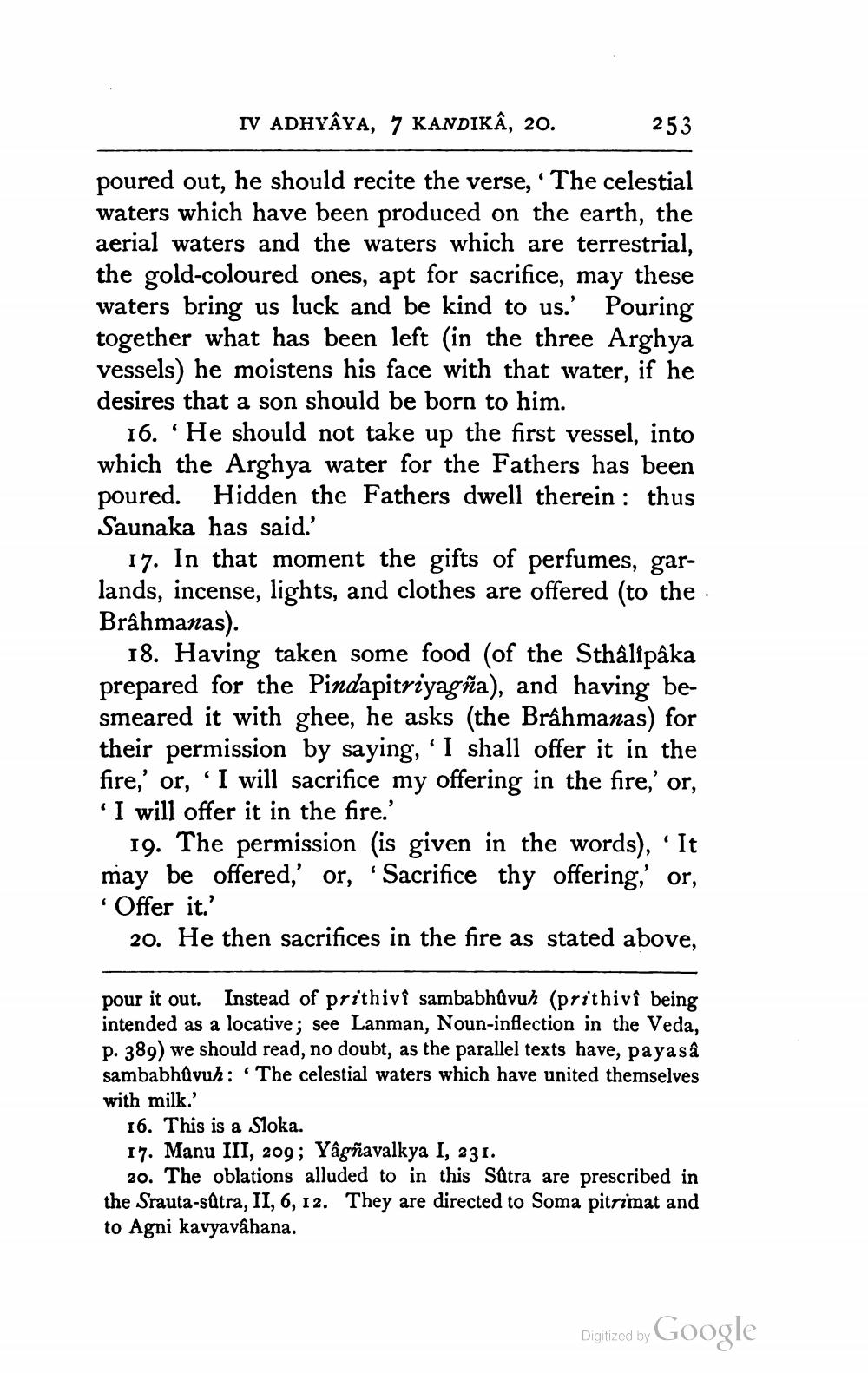________________
IV ADHYÂYA, 7 KANDIKÂ, 20.
253
poured out, he should recite the verse, 'The celestial waters which have been produced on the earth, the aerial waters and the waters which are terrestrial, the gold-coloured ones, apt for sacrifice, may these waters bring us luck and be kind to us. Pouring together what has been left (in the three Arghya vessels) he moistens his face with that water, if he desires that a son should be born to him.
16. 'He should not take up the first vessel, into which the Arghya water for the Fathers has been poured. Hidden the Fathers dwell therein : thus Saunaka has said.'
17. In that moment the gifts of perfumes, garlands, incense, lights, and clothes are offered (to the Brâhmanas).
18. Having taken some food (of the Sthâlipaka prepared for the Pindapitriyagña), and having besmeared it with ghee, he asks (the Brahmanas) for their permission by saying, 'I shall offer it in the fire,' or, ‘I will sacrifice my offering in the fire,' or, * I will offer it in the fire.'
19. The permission (is given in the words), 'It may be offered,' or, 'Sacrifice thy offering,' or, Offer it.' 20. He then sacrifices in the fire as stated above,
pour it out. Instead of prithivî sambabhûvuh (prithivî being intended as a locative; see Lanman, Noun-inflection in the Veda, p. 389) we should read, no doubt, as the parallel texts have, payasa sambabhůvuh: The celestial waters which have united themselves with milk.'
16. This is a Sloka. 17. Manu III, 209; Yâgñavalkya I, 231.
20. The oblations alluded to in this Sätra are prescribed in the Srauta-sūtra, II, 6, 12. They are directed to Soma pitrimat and to Agni kavyavahana.
Digitized by Google




